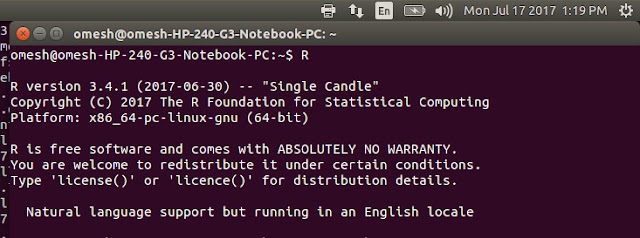Dear All,
In this post we will discuss about latest trends in IT industry. These topics can be chosen for seminar topics in your academic curriculum.
Have you heard about BlockChaining, Webscrapping & elasticsearch. Both of these are trending technologies in IT industry now a days.
In this post we will discuss about latest trends in IT industry. These topics can be chosen for seminar topics in your academic curriculum.
Have you heard about BlockChaining, Webscrapping & elasticsearch. Both of these are trending technologies in IT industry now a days.
- BlockChaining:
Blockchaining is a distributed system application. The term block Chain was coined in 2008 and was implemented as a core component in digital currency i.e bitcoin in 2009. Block chain is secure by cryptographic design. The block are immutable entity in this architecture. It is used as a digital ledger to keep record of electronic transactions. Due to replication of data on immutable nodes it is tolerant to hacking attacks. To adversely affect any value in a block the intruder will need to access all the nodes where the data is replicated which has quite low probability of occurrence.
- Elasticsearch:
In the era of data Analytics, elasticsearch is new tiger of the market. It is again a distributed and RESTful analytics engine with extensive capabilities of integration with different technology platforms. It can also be used along with hadoop for faster analysis. It uses inverted indexing in its core for analysis. Just like hadoop it is horizontally scalable in nature.
You all might be aware of the customization of products and ease of access and control. All these are small footprints of coming era of IoT. Every device connected with every other device, communicating without any human intervention. For a non-techie its just a market shift in product segments but for a tech guy its a field poured with challenges as well as opportunities in all segments. You can design and test various models using Raspberry-pi and packet-tracer frameworks.
- IoT- Internet of Things:
You all might be aware of the customization of products and ease of access and control. All these are small footprints of coming era of IoT. Every device connected with every other device, communicating without any human intervention. For a non-techie its just a market shift in product segments but for a tech guy its a field poured with challenges as well as opportunities in all segments. You can design and test various models using Raspberry-pi and packet-tracer frameworks.
- Data Streams and Data Pipes
some more details and other topics will appear soon on this post. To keep track of industry trends in the field of big data, IoT & Analytics like our initiative at DataioticsHub






